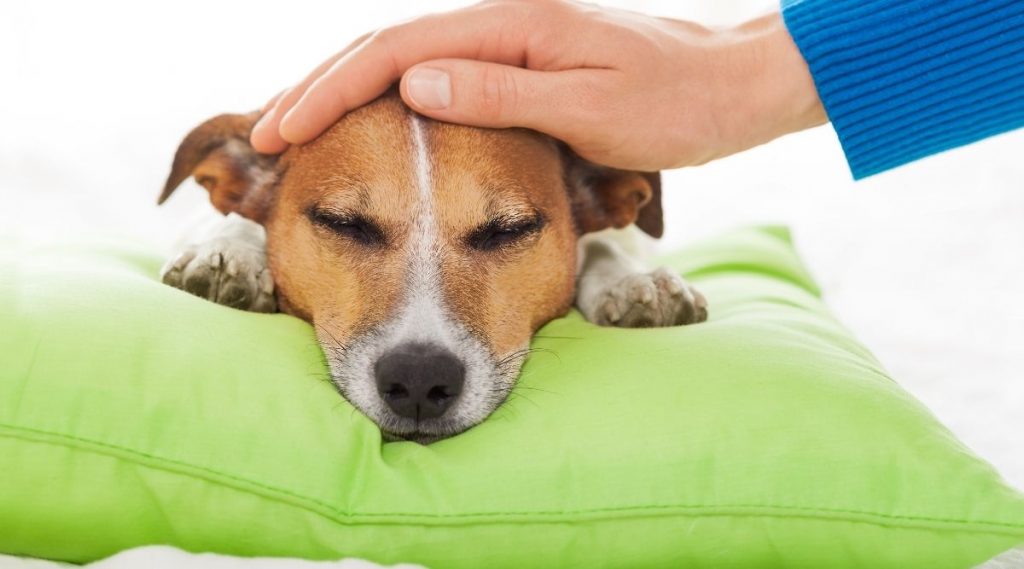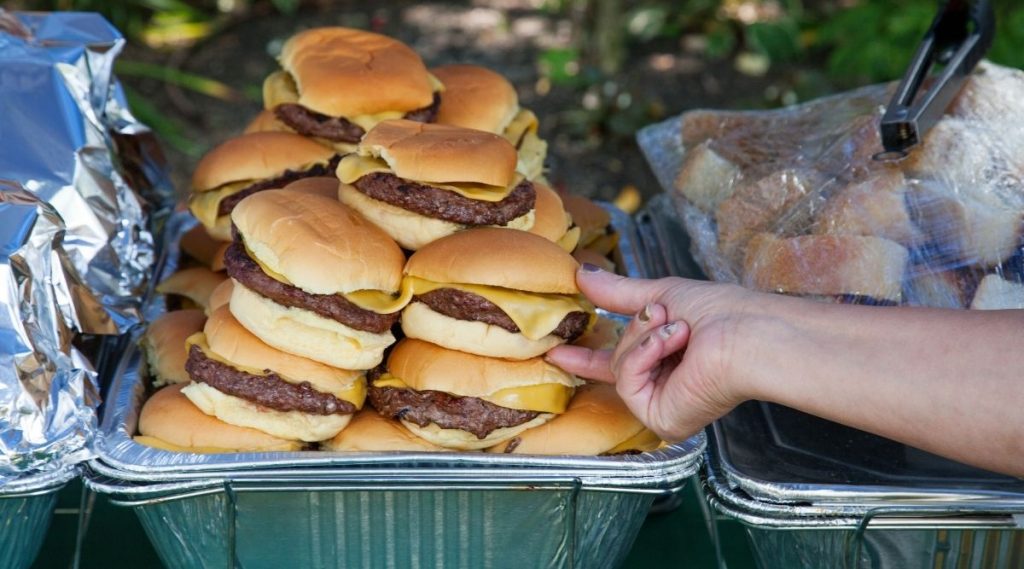This post may contain affiliate links. Please read my disclaimer policy
Dogs, as we all know, are the inventors of ‘puppy dog eyes.
Indulging in a cheeseburger with a dog in tow can make some pet owners feel bad, especially if you have the sort of dog that follows every lift of the cheeseburger, on its way to your mouth.
We’re all guilty of sneakily passing our dog a scrap of meat, or a small piece of our meal every so often, but what happens when you fancy giving them their own to eat?
If you want to treat your dog, or if you regularly run into the puppy dog eye problem, it’s not surprising that you’ve decided to do the smart thing and look up whether or not it is safe for dogs to eat cheeseburgers.
Luckily, this article contains all of the answers, so carry on reading for all of the information you need to know about whether cheeseburgers are safe for dog consumption or not.
Contents
Human Food Doesn’t Always Equal Dog Food
If you are a dog owner, you probably already know that there are many foods out there that can be toxic for your dog to consume.
These foods are bad in their raw states, but they’re just as bad when mixed into something inconspicuously.
This is why it is important to thoroughly check the ingredients of any foods that you might choose to share with your dog.
There are many specific foods, such as onion, chocolate, and grapes, that can upset your dog’s tummy if they eat them, or even result in a trip to the veterinary clinic.
Veterinary bills are expensive, and eating something bad for your dog won’t be very comfortable for them, and can even be fatal, so this is something that should definitely be taken seriously.
Can Dogs Eat Cheeseburgers?
So, can dogs eat cheeseburgers?
The short, safe answer here would be to say no.
Fresh cheeseburgers from a burger van or a restaurant can often contain many ingredients that are bad for dogs, such as onions or garlic.
These are two ingredients that are often incorporated into burger patties in order to add flavor, and often go unnoticed otherwise. Feeding either of these ingredients to your dog can be fatal, so giving your dog a cheeseburger in this way is not advised.
Some owners are known to give their dogs cheeseburgers as a regular treat, however, this should definitely be avoided, as ingesting too much onion or garlic can be lead to a bad turn for your pup, and the saltiness, fattiness, and amount of carbohydrates contained in cheeseburgers are bad for your dog.
Dogs can, however, eat cooked, unseasoned pure burger meat, as well as cheese – in fact, cheese is often used to train puppies, as they can eat it and they like it so much.
So if you wanted, you could make your dog a dog-safe burger from these two ingredients, in order to make sure that they are not left out.
Things To Think About Before Giving Your Dog A Cheeseburger
If you really want to give your dog a cheeseburger, then you should consider a few things before doing so.
Harmful ingredients
As already discussed, you should take into consideration the potential presence of any harmful ingredients.
Unless you’ve made it yourself, or you can definitely verify that it only contains ingredients that are safe for your dog to eat, this is always something that you should pass on, as your dog may not thank you later on.
Ingredients That Should Be Consumed In Moderation
You should also think about other ingredients that dogs shouldn’t have too much off, such as carbohydrates, salts, fats, and sugars, which can lead to health issues such as obesity.
The bun of a burger, in particular, can be quite bad for them, so it could be worth just feeding them the meat pattie without the bun.
Allergies/Lactose Intolerance
If your dog suffers from any allergies, or has a health issue such as lactose intolerance, checking the ingredients of the items that you feed your dog is even more important.
In particular, cheese for dogs with lactose intolerance can be a bad idea, and lead to an upset tummy.
Allergies are really important to check for, as if your dog is fed something that they are allergic to, they may go into anaphylactic shock, which can be fatal.
Alternatives To Cheeseburgers For Dogs
Make your dog-safe own cheeseburgers
As we’ve already mentioned, if you desperately want to give your dog the cheeseburger-eating experience, you can make them a simple, dog-safe cheeseburger out of plain, unseasoned hamburger meat, cooked yourself, with some cheese on top.
This easy alternative is sure to make your fur baby super happy, without risking their health in the process, giving your full control of all of the ingredients that you choose to expose your dog to.
Dog Treats
If making your dog a cheeseburger is a little too much, you can always give them some of their favorite treats.
There are plenty of delicious dog treats on the market, sure to fill that cheeseburger-shaped hole in your dog’s heart. Not to mention, dog treats come in a wide range of flavors, and can even contribute to the health of your pup!
Dental treats, or treats containing plenty of nutrients important for the growth of your dog are widely available on the market – and the best part is, provided that your dog doesn’t have any allergies and you follow the feeding guidelines, it should be completely safe for your pup.
What To Do If Your Dog Has Managed To Eat A Cheeseburger

Food is left unattended, and resultantly, eaten by pets such as dogs all of the time.
Leaving a delicious, fragrant cheeseburger out on the side is sure to tempt your dog, and even the most well-trained dogs can find the task of resisting treats like this impossible.
If your dog is one of those, and they have eaten an unattended cheeseburger, it needs to be taken seriously, as your dog may have consumed ingredients harmful to them.
Firstly, check your dog for symptoms of eating something toxic to them. Common symptoms of this are:
- Vomiting
- Diarrhea
- Nausea
- Loss of appetite
- Dry heaving
- Pale gums
- Fast heart rate
- Vomiting blood
- Lethargy
- Changes in urination – more or less frequent
- Drinking more
- Yellow gums
- Tarry stool
All of the above symptoms are incredibly serious, and if your dog is exhibiting any, you should call your veterinary practice for advice, right away.
IMPORTANT: If you suspect that your dog, in any event, may have eaten something that they shouldn’t have, you should always call the veterinarian for advice, just in case. It’s always better safe and sorry.
Conclusion
It sounds simple, but that’s because it is – makes sure that you don’t leave anything in reach of your dog, or unattended, that they should not be allowed to either play with or eat.
Simply training your dog not to eat things without permission is completely possible with time, but it is still incredibly important to make sure that they don’t have the ability to do it at all, no matter how unlikely.
Making sure to keep them out of rooms such as the kitchen if they can’t be trusted, or simply ensuring that they have plenty of their own food down so that they aren’t tempted with yours may be enough to ensure that this doesn’t happen to your dog.
But even so, it’s really important to make sure that you are always taking the correct precautions to make sure that your dog is safe, and that it doesn’t have the opportunity to eat things that are bad for it.

